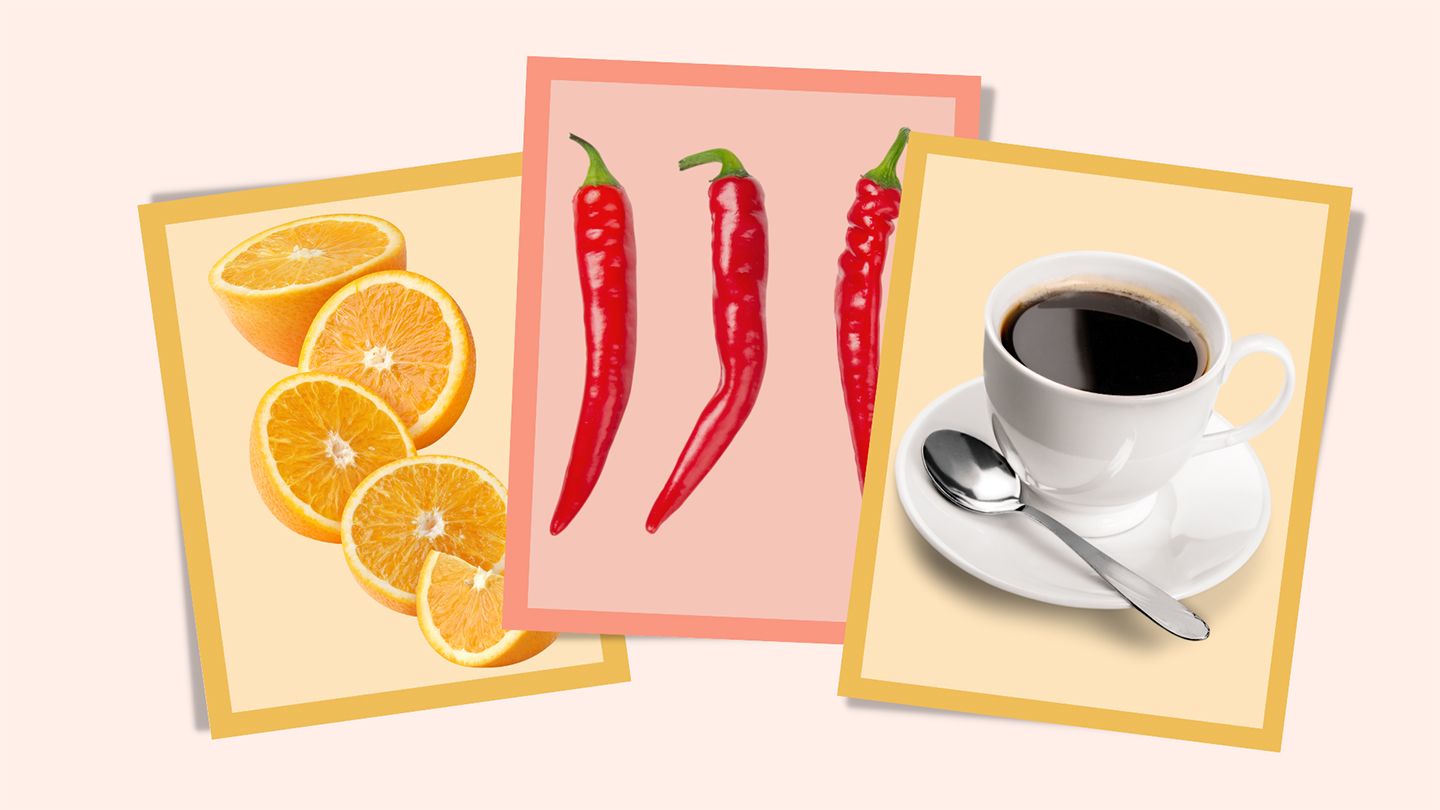1. Acidic Foods
Citrus, tomatoes, and carbonated beverages (seltzer, tonic, flavored sparkling waters) are all acidic foods. “Acidic foods make the bladder more sensitive,” says Karolynn Echols, MD, urogynecologist and director of female pelvic medicine and reconstructive surgery at Jefferson Health in Philadelphia.
Echols notes that the bladder typically has a protective lining that safeguards the muscle of the bladder, which contracts when you have to urinate. “When you have a UTI, the lining becomes weak and the bladder muscle is more sensitive to these acidic foods,” she explains.
2. Spicy Foods
Spicy peppers contain an active ingredient called capsaicin that gives them their fiery heat. However, “capsaicin can irritate the bladder in some sensitive people,” says Dr. Zimmern. That may mean a stronger urge to urinate more often. If possible, keep your food choices more on the mild side while you’re recovering from a UTI. Spicy foods include hot peppers, hot sauce, salsas, curries, and any other dish that provides a little heat. Now’s the time to avoid topping off tacos and pizza slices with jalapeños.
3. Caffeine
During UTI treatment, it’s time to rethink your morning cup of coffee or afternoon tea. “Caffeine excites the brain, and the brain is what controls the bladder,” says Zimmern. Therefore, caffeine will excite your bladder, he says.
During a time when you may be urinating often, consuming caffeinated beverages or foods like coffee, tea, caffeinated sodas, or chocolate will have you heading to the bathroom even more frequently.
4. Alcohol
In addition, alcohol may interact with the antibiotics treating the infection, says Zimmern. “We recommend not drinking alcohol when taking antibiotics,” he says. “Save wine, beer, hard liquor, and other alcoholic drinks for after recovery.”
5. Sugary Foods and Drinks
There are two reasons to avoid consuming a lot of sugar right now. For one, “sugary drinks — such as soda, some juices, sweet teas, sweetened coffees, and sports drinks — stimulate the bladder, so you’ll be going to the bathroom more,” says Echols. Secondly, bacteria feed on sugar. “Consuming sugar makes it easier for the infection to take hold,” she says.
Along with the drinks mentioned above, other top sources of sugar in the diet include desserts, sweet snacks, candy, and breakfast cereals and bars. Although not exactly like a candy bar, Echols recommends consuming berries “to add sweetness to your diet during UTI treatment, because their compounds, such as anthocyanins and resveratrol, provide anti-inflammatory properties.”
6. High-Sodium Foods
7. Cured and Processed Meats
“Avoid cured meats during UTI treatment,” says Echols. “Aged, processed meats often contain nitrates (a preservative), which is another bladder irritant.”
You can instead opt for fresh meats and proteins during this time, including:
- Chicken
- Fish
- Lean cuts of red meat
- Uncured, nitrate-free products
This will be listed on the front label of the package. So check your favorite brands to see if it has nitrates.
The Takeaway
- Some foods in your diet can stimulate the bladder and contribute to UTI symptoms.
- Decreasing your intake of acidic foods, spicy foods, alcohol, caffeine, sodium, and more may help reduce urinary urgency and frequency.
- In addition, limiting sugar is important for supporting your body’s ability to clear the infection.
Read the full article here




